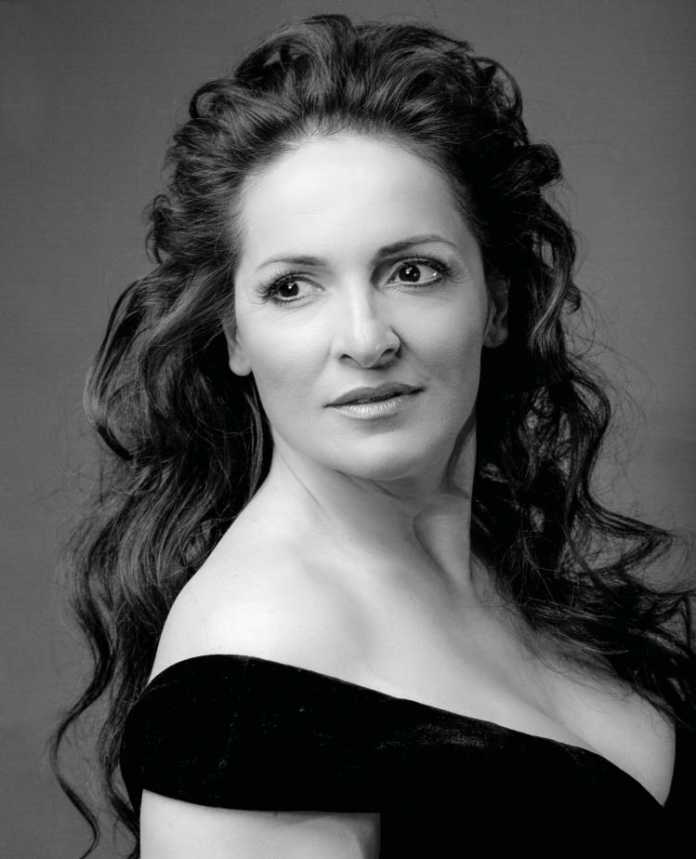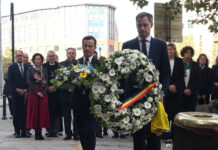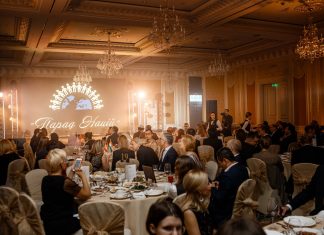Ukraine has given me a wonderful education and a huge experience, so I have to hand it over to the younger generation. My country, my audience, my students need me. I feel it, — says Susanna Chakhoyan.
What projects are you dealing with now?
— In the near future, on October 19, my concert will take place in Vienna. We are preparing a program with my Austrian colleague, Mehrzad Montazeri. This is already the third project within the framework of “Austria–Ukraine without Borders”, and at the end of October, I will sing at the opening of the Viennese Ball in Kyiv with the Austrian tenor Sebastian Reinthaler.

Are you continuing your work as a teacher?
— Yes, I have worked with my students for about seven years. I started with private lessons. Nowadays I have a small class at the Institute of Music named after R. Glier Of course, it takes a lot of time and energy, but I really enjoy watching the development of young people. Do you know what is interesting? When you teach by yourself, you control yourself better on the stage. Therefore, our learning is a mutually enriching process.
When did you understand that you wanted to teach?
— It happened quite accidently. A young singer came to me and asked for help. I tried to show her, explain. And she managed everything! So I realized that I can teach and convey my knowledge. When there is a contact and I see these grateful eyes — it is an extraordinary feeling. Just like talking to your own children. I have great pleasure from seeing how they grow and creatively develop.
When did you realize that the opera is your life-work?
— This way was quite long for me. From an early age I lived in a symphonic world. There was a huge collection of instrumental and symphonic music at my home, which my parents had gathered. I was listening to Beethoven concerts, symphonies of Tchaikovsky, Brahms, and Mahler for the whole day. I came to the opera when I was studying at the second year of the conservatory, already being quite a mature musician. I got a platter of Evgenia Miroshnychenko with the recording of Glier’s concert. It was for me a real discovery, some kind of enlightenment. I guess, it was my true purpose.
How much time did you have to work to develop your unsurpassed soprano?
— I continue to work even today. The singer is comparable to an athlete or dancer of the ballet, our profession also requires daily hard work. This is a long and difficult way. I remember my first vocal lessons at the Odessa Conservatory, then at the Kyiv Music Academy, where I received a huge technical arsenal in the classroom of Evgenia Miroshnychenko.

In one interview you said: “Evgenia Miroshnychenko opened me not only as a singer and actress, but also as a person.” Tell us about that.
— It was hard to work with Ms. Miroshnychenko. She was extremely demanding. From the first lesson, besides technical skills, you had to be an artist, an actress, tell a true story and over live a certain character. It was very difficult, but taught the main thing: the singer is an artist who paints with the voice. As for character, Ms. Miroshnychenko brought up real fighters on the stage from us. It allowed us to work under any circumstances: illness, bad mood, problems in private life. Ms. Miroshnychenko liked to repeat: “Your voice will sound good only once a year — just when you have no performance. Therefore, you have to learn to sing in any condition.”
Does such upbringing help in life?
— Of course. We must be able to reject negative and focus our attention on the main thing. When I meet people who I have not seen for several years, they are surprised: “You always have your eyes sparkling. How can you do that?”, I understand that I have problems no less than others. But I try to notice the best moments in my life. And even the voice then sounds differently. It is a life-giving force. If you are positive, then you send this message to the hall during the performance. And people also shine after your performance. This is very important: to transfer the warmth of your soul to the viewers.
Do you remember your first entrance upon the stage?
— I had the greatest impression from my first performance in the Odessa Opera. I was 12 years old at that time. I was performing with an orchestra created by my father, who stood at the conductor’s desk. Especially for this performance, my mother had sewn a magnificent stage outfit for me. After the concert, I accidentally heard an exchange of impressions between the spectators. The little boy told his mother that he had liked singing of the girl with a huge red bow most of all. This was my first little honouring.
What do you feel when you go upon the stage?
— Each performance is the highest level of adrenaline and incredible emotions, excitement, as if for the first time. Tomorrow the public will expect more from you than you did yesterday and will not forgive any mistakes on the stage. This is an incredible responsibility, which requires the iron nerves from the artist.
How do you know that the concert was successful?
— I feel the audience: everyone is freezing; there is an absolute silence in the hall, as if some kind of magic is happening. Such wonderful moments are very valuable to any artist. Sometimes the viewers recall the smallest details of my performances many years later. It is also very nice when people, who came to the concert hall and heard classic music for the first time, come again and again. This is one of the most important missions of the artist: while demonstrating a high performing style, to bring up the delicate taste of the viewer.

You have many awards and honours. Which is the most important for you?
— Each award is a certain stage of my life, where a part of the soul was invested. But the most valuable award for me is the recognition and love of my admirers.
Do you represent Ukraine during the foreign concerts? Do you feel responsibility?
— Of course. While being still a student, I came with this idea in international contests: I represent Ukraine; I carry the image of my state. And it is not just about how you sing, but also about how you behave, how you look, how you communicate, including the foreign language. Today, more than ever, it is extremely important to show the whole world: the Ukrainians are a talented, enlightened nation with rich traditions and huge potential.
The conversation was held by Maria VILDE













